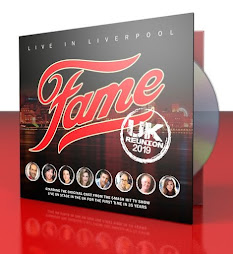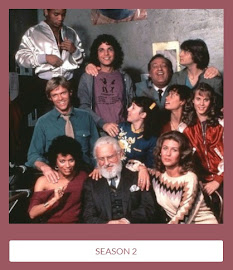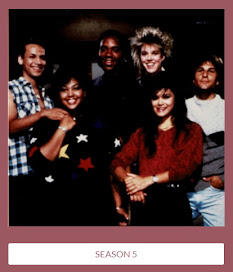A woman who has consciously chosen to deal with black themes and talks of how important being black is to her, she nonetheless resists being pigeonholed. "Certainly, my blackness has shaped my experience, my passion, my pain. But I'm an artist, and I would like to be looked at as an artist. 'Stompin' ' is a powerful, engaging story. I'm not a black director directing black people. I'm a director finding a story and telling it." "Stompin' at the Savoy," written by Beverly M. Sawyer, is about four young black women from Brooklyn in the 1930's and 40's who dream of love and financial success and spend their evenings off at Harlem's famed Savoy Ballroom. The film stars Lynn Whitfield, Vanessa Williams, Jasmine Guy and Mario Van Peebles.
It is Ms. Allen's third television movie; she also directed "Polly," a 1989 musical version of "Pollyanna," starring Ms. Rashad and Keshia Knight Pulliam, and its sequel, "Polly: One More Time," in 1990. "First-rate entertainment," John J. O'Connor wrote of "Polly" in The Times, crediting Ms. Allen with "smooth direction and rousing choreography."
Ms. Allen is also director of the hit NBC series "A Different World." She is credited with having kept the program, a "Cosby Show" spinoff about black college students, on the air after its first, unsuccessful season in 1987 and turning it into a comedy with surprisingly serious themes. It is now among the top 20 prime-time shows.-
Meanwhile, Ms. Allen has been working on a Broadway musical. She has also developed three movie projects. She describes "Freedom Over Me," a tale of Seminole Indians and escaped slaves, as "an action western, a male buddy movie." Another is "Paris Noir," about three black women singers, two of them modeled after Bricktop and Florence Mills, working as a trio in Paris in the 1920's. The third, "Goodbye Papa," was inspired by the death of her father, Arthur Allen, a dentist.
"When I did 'Polly' I got calls from every studio in town," Ms. Allen said. "That led to what I call development hell. Honey, I've read so many scripts. I'm going to have to stand on top of the Empire State Building naked if they don't green-light something soon."
It isn't that she minds the work, she says. After all, this is the former "family entertainer," high school honor student, drum majorette and taker of 10 dance classes a week. "I'm used to taking care of business," she said.
Ms. Allen's first taste of formal theater training came at Howard University in Washington. She spent summers at the American Dance Festival in New London, Conn., settling on a career as a Broadway performer after graduation. With the 1986 revival of "Sweet Charity," she became a star. Ms. Allen then moved into television: she directed and performed in NBC's "Fame" in the early 1980's and directed episodes of the NBC series "Fresh Prince of Bel Air" and "Quantum Leap" during the 1990-91 season.
Along the way, Ms. Allen learned from Bob Fosse, who told her to be herself rather than mimic Gwen Verdon in "Sweet Charity," that actors had to be free. She learned that television had to be as spontaneous as live theater. She learned to be tough on "A Different World," which she modeled on her own tumultuous years at Howard in the 1960's.
"What I saw was some very engaging and compelling characters and here and there a good story," she said of the television series. "But mostly it was so silly. It's at college that you learn about your sexuality, about yourself as a political being, about the friends that you'll have for life, about family issues."
She brought Jesse Jackson on in an episode about voter registration. There was a show on AIDS, one on apartheid and another on sexual harassment that followed Anita Hill's testimony in the confirmation hearing of Clarence Thomas for the United States Supreme Court. As she examined those issues, the lessons learned in childhood about her black self and heritage became solidified.
Ms. Allen says she was not torn, as many black women were, between their loyalty to black men like Justice Thomas and Mike Tyson and loyalty to their female accusers. "It's a problem that whatever happens to one of us happens to all black people. One person's vision is often regarded as representing a community. The good thing was that at last black drama held a No. 1 position on television, something a lot of us have been trying to achieve for years.
"I hate the comparisons people make," she continued. "You have Spike Lee here, John Singleton there. There are a million other directors these two could be compared to. What about Spike and Scorsese?"
So where is the Hollywood film one might have expected by now of Ms. Allen? Frank Price, president of Columbia Pictures, calls her a director of "tremendous taste, intelligence, energy and talent." But he says, it's a matter of getting the right script. "And you can't assume anybody at a studio will recognize what the right script is."
Was Warrington Hudlin, president of the Black Film Makers Foundation and producer of "House Party," accurate when he commented that sexism is even more powerful in Hollywood than racism?
"I don't know if it is sexism or just that we haven't had the opportunities," she said. Women are said to make small movies about personal issues of limited interest to the general public. Ms. Allen disagrees. " 'Thelma and Louise' was really a breakthrough movie. We haven't had enough movies like those great Joan Crawford and Bette Davis films. People went to see them. Hollywood is very much a man's world. We don't have a woman who can green-light a movie or order a TV show. But we do have a lot of women producers. Sometimes I sit in a room and it's full of women. I think we're getting there."
On the other hand, she thinks men do not have it that much easier. "I think if I were a man I probably would be equally respected but in a lot more trouble. I think it's harder for them to talk." Ms. Allen recalls the response by network executives to a character on "Fame" who was gay. "They were threatened."
Suddenly meditative, she reaches back to her early love for an analogy. "Dance is about rhythm and time. Our lifetime is very small in the bigger scheme. That is not to say we shouldn't push. But we're getting somewhere. I think we have to keep a positive attitude and not get too angry. But stay defiant and strong. Anger and defiance are two different things."
She smiles broadly. "I should be the darling of Hollywood. No attitude. No, I have a lot of attitude. No ego."





















.webp)

















No comments:
Post a Comment